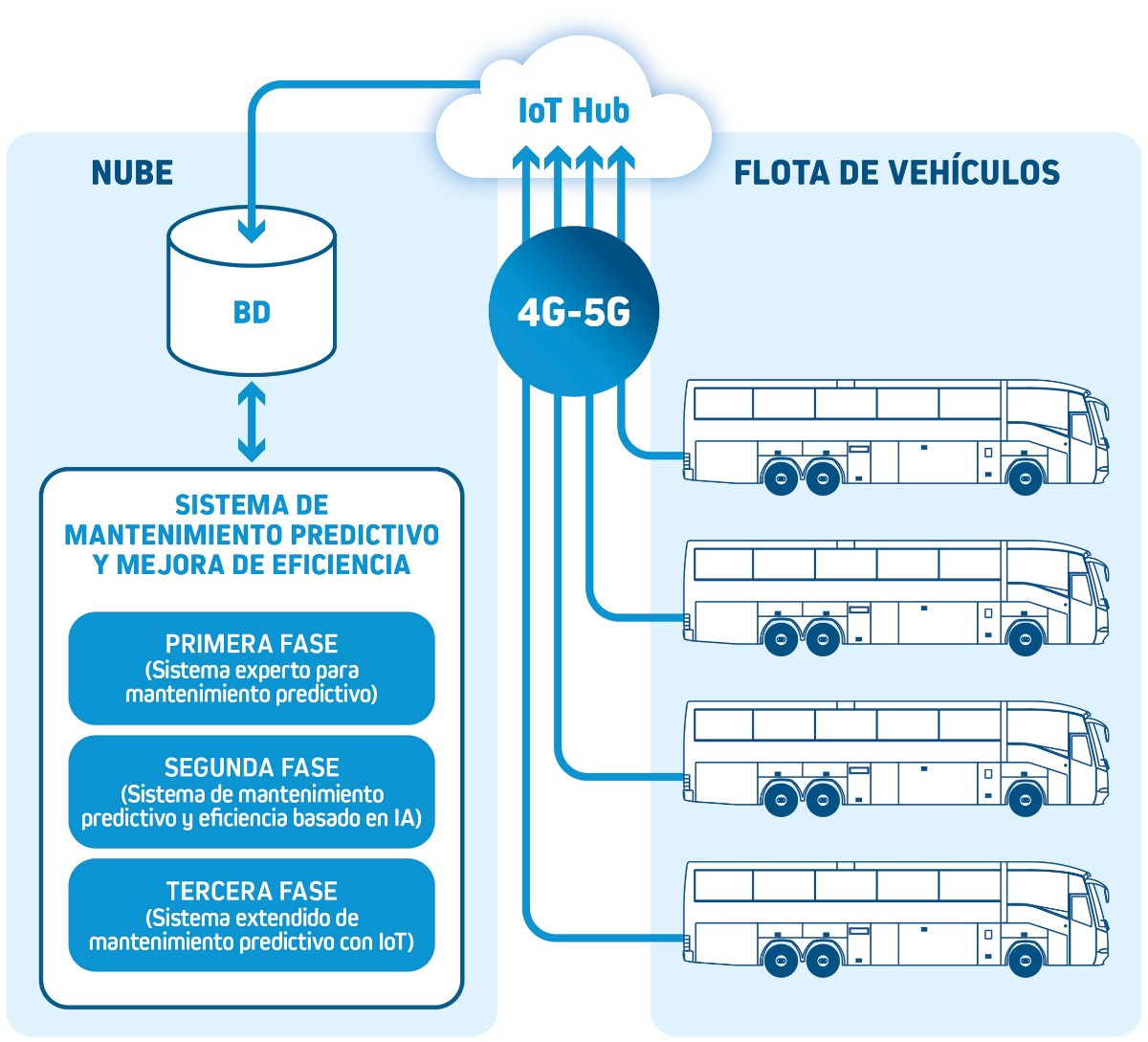The two-year project, called SAPOHVAC, is being developed in partnership with the University of Seville and is supported by CTA (Technological Corporation of Andalusia), the Center for the Development of Industrial Technology (CDTI), the Metropolitan Transport Consortium of Seville and TUSSAM.
 09/03/2023
09/03/2023
The SAPOHVAC project is aimed at developing a smart system based on two complementary objectives: to generate a predictive maintenance system that can anticipate when a technical intervention is necessary for a vehicle before a breakdown occurs to reduce costs and intervention times; and the energy optimization of HVAC systems to reduce operation costs.
The SAPOHVAC project consists of several phases that use different AI techniques such as expert systems, machine learning, IoT and deep learning to cover as many diagnostic cases as possible.
In the first phase of the project, an expert system was developed based on rules generated from Hispacold previous experience to predict issues in the functioning of equipment before a breakdown occurs that would cause the vehicle to be taken out of service.
The second phase is focused on the integration of AI models that can provide new knowledge and develop new rules from machine learning. These models will be based on deep learning and machine learning techniques and will be able to increase the predictive capacity of the system and reduce the energy consumption of on-board HVAC systems.
In the last phase of the project, the goal is to develop and integrate an electronic device that will make it possible to read new variables thanks to the incorporation of additional sensors (IoT). The integration of these new variables into the AI models will result in the extended predictive maintenance system with greater scope and features.

A large volume of vehicle operation data is necessary to develop and fine-tune the system. To achieve this, Hispacold is using data generated by TUSSAM vehicles, which have made it possible to train the system on urban applications, as well as with the vehicles of the Metropolitan Transport Consortium of Seville (thanks to the partnership agreement signed with both entities aimed at promoting innovation between the Consortium and Hispacold), in order to validate the system in intercity applications. The project is currently working in real time on a fleet of 25 vehicles that belong to the operators Tranvías de Sevilla and Autocares Paulino, and has been collecting and analyzing data since last November.
This project was funded by CDTI with co-financing assistance from the European Regional Development Fund (FEDER) through the "2014-2020 Pluriregional Operational Program of Spain" and CTA (Technological Corporation of Andalusia).
